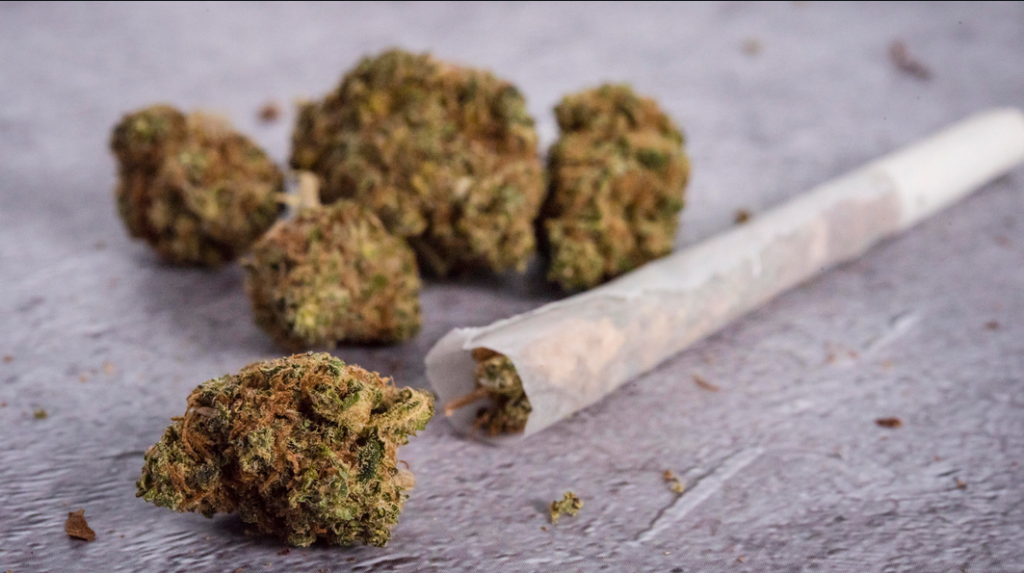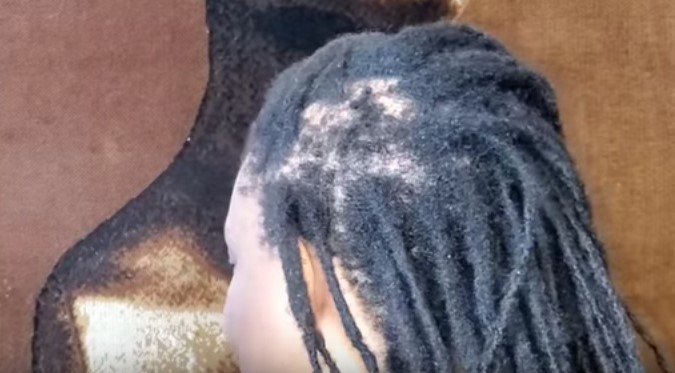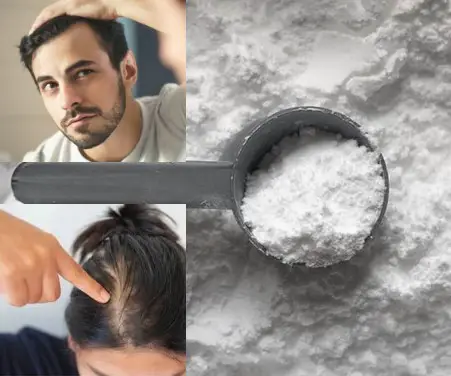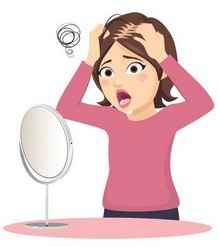In the world of health and wellness, there’s a growing curiosity about the effects of marijuana, particularly in relation to hair health. One question that often arises is: Can smoking weed cause hair loss? This article aims to delve into this topic, providing a comprehensive and authoritative exploration of the potential impact of marijuana on hair health.
Marijuana, also known as cannabis, has been used for both medicinal and recreational purposes for centuries. However, with its increasing legalization and societal acceptance, it’s crucial to understand its potential side effects. One such concern that has been gaining attention is the potential link between marijuana use and hair loss.
While some individuals swear by the benefits of marijuana, others express concerns about its potential negative effects. Hair loss, in particular, is a sensitive issue that can significantly impact an individual’s self-esteem and overall quality of life. Therefore, understanding the potential link between marijuana use and hair loss is of utmost importance.
In this article, we’ll delve into the science behind hair growth and loss, explore the impact of marijuana on hair health, and share personal anecdotes to provide a well-rounded perspective. We’ll also address common queries and concerns about marijuana and hair loss in our FAQ section.
Before we dive in, you might find it interesting to read about other substances and their potential impact on hair health. Check out our article on “Does Meth Cause Hair Loss?” for a detailed exploration of this topic.
Let’s embark on this journey to uncover the truth about marijuana and hair loss.
So, Can Smoking Weed Cause Hair Loss?
The question “Can Smoking Weed Cause Hair Loss?” is complex and the answer is not entirely straightforward.
Scientific research on this topic is limited, and the results are mixed. Some studies suggest that THC, the active compound in marijuana, can inhibit the growth of hair follicles, potentially leading to hair loss. However, other studies and anecdotal evidence suggest that there is no direct link between marijuana use and hair loss.
It’s also important to consider individual factors such as genetics, overall health, and lifestyle, which can significantly influence hair health. For instance, if a person is genetically predisposed to hair loss, smoking weed might accelerate this process.
Understanding Marijuana and Its Components
Marijuana, also known as cannabis, is a plant that has been used for both medicinal and recreational purposes for centuries. The plant contains over 100 different compounds, known as cannabinoids, each with its own unique effects on the human body. The most well-known of these cannabinoids is tetrahydrocannabinol (THC), the psychoactive component responsible for the ‘high’ associated with marijuana use.
THC works by binding to cannabinoid receptors in the brain and throughout the body. These receptors are part of the endocannabinoid system, a complex cell-signaling system that plays a role in regulating a wide range of functions and processes, including sleep, mood, appetite, and memory.
Interestingly, these cannabinoid receptors are also found in hair follicles. According to a study conducted by the University of Debrecen, THC can attach to these receptors and inhibit the growth of the hair follicle. This suggests that marijuana use could potentially impact hair health, although more research is needed to fully understand this relationship.
In addition to THC, marijuana also contains another important cannabinoid: cannabidiol (CBD). Unlike THC, CBD is not psychoactive and does not produce a ‘high’. Instead, it’s often praised for its potential therapeutic benefits, including pain relief, anxiety reduction, and seizure control. However, the impact of CBD on hair health is less clear and is a topic that warrants further investigation.
While we continue to explore the potential impact of marijuana on hair health, it’s also important to understand the effects of other substances on hair loss. For instance, methamphetamine, a powerful stimulant, has been linked to hair loss.
In the next section, we’ll delve deeper into the science behind hair growth and loss, and how marijuana might interfere with this process. Stay tuned!
The Science Behind Hair Growth and Loss
Understanding the potential impact of marijuana on hair health requires a basic understanding of the science behind hair growth and loss. Hair growth is a complex process that occurs in cycles. These cycles consist of three phases: the anagen phase (growth phase), the catagen phase (transitional phase), and the telogen phase (resting phase).
During the anagen phase, your hair follicles are actively producing new hair cells. This phase can last several years, and the length of this phase largely determines the maximum length of your hair. The catagen phase is a short transitional period when hair growth stops, and the hair follicle shrinks. Finally, during the telogen phase, the hair rests. After a few months in the telogen phase, the hair falls out, and a new hair begins to grow in its place, starting the cycle anew.
Hair loss occurs when this cycle is disrupted. This can happen for a variety of reasons, including hormonal changes, nutritional deficiencies, certain medical conditions, and the use of certain medications. Stress, including the physical stress that drugs like methamphetamine can put on the body, can also disrupt the hair growth cycle and lead to hair loss.
Interestingly, the cannabinoid receptors that THC binds to are also found in hair follicles. This suggests that THC could potentially interfere with the hair growth cycle, although more research is needed to confirm this.
While we continue to explore the potential impact of marijuana on hair health, it’s also important to understand the effects of other substances on hair loss. For instance, certain medications, such as Losartan, a drug used to treat high blood pressure, have been linked to hair loss. To learn more about this, check out our article on “Can Losartan Cause Hair Loss?”.
In the next section, we’ll delve deeper into the impact of marijuana on hair health, discussing the current research and presenting various viewpoints on this controversial topic. Stay tuned!
The Impact of Marijuana on Hair Health
The potential impact of marijuana on hair health is a topic of ongoing debate and research. As we’ve discussed, marijuana contains THC, a compound that can bind to cannabinoid receptors in hair follicles. Some studies suggest that this interaction could inhibit hair follicle growth, potentially leading to hair loss. However, the research in this area is far from conclusive, and many questions remain.
One study conducted by the University of Debrecen found that THC could inhibit the growth of the human hair follicle, suggesting a potential link between marijuana use and hair loss. However, it’s important to note that this is a single study, and its findings need to be confirmed by further research.
On the other hand, anecdotal evidence presents a mixed picture. Many regular marijuana users report no hair loss, while others claim to have experienced hair thinning or balding after prolonged use. These contrasting experiences highlight the complexity of this issue and the need for more comprehensive research.
In addition to potential hair loss, some studies suggest that THC can build up on hair shafts, damaging the strands. This could potentially lead to weaker hair that is more prone to breakage. However, again, more research is needed to confirm these findings.
While we continue to explore the potential impact of marijuana on hair health, it’s also important to understand the effects of other substances on hair loss. For instance, creatine, a popular supplement among athletes and fitness enthusiasts, has been linked to hair loss. To learn more about this, check out our article on “Does Creatine Cause Balding?”.
In the next section, we’ll delve into personal anecdotes and experiences, providing a more human perspective on this complex issue. Stay tuned!
Anecdotal Evidence and Personal Experiences
While scientific research provides valuable insights into the potential impact of marijuana on hair health, personal anecdotes and experiences add a human element to this complex issue. These stories can offer a more nuanced understanding of the relationship between marijuana use and hair loss, highlighting the diversity of experiences and the many factors at play.
For instance, some regular marijuana users report no changes in their hair health, even after years of use. They maintain a full head of hair and do not notice any increased hair shedding or thinning. This suggests that marijuana use does not necessarily lead to hair loss and that other factors, such as genetics and overall health, may play a more significant role.
On the other hand, there are also stories of individuals who believe that their hair loss was triggered or accelerated by marijuana use. These individuals often report noticing increased hair shedding or thinning after they started using marijuana regularly. However, it’s important to note that these are personal anecdotes and not definitive proof of a causal relationship between marijuana use and hair loss.
These contrasting experiences highlight the complexity of this issue and the need for more comprehensive research. They also underscore the importance of considering individual factors, such as genetics, overall health, and lifestyle, when exploring the potential impact of marijuana on hair health.
While we continue to explore the potential impact of marijuana on hair health, it’s also important to understand the effects of other health conditions on hair loss. For instance, celiac disease, an autoimmune disorder, can lead to nutrient malabsorption and hair loss. To learn more about this, check out our article on “Can Celiac Disease Cause Hair Loss?”.
In the next section, we’ll delve into other potential impacts of marijuana on the body and how these could potentially relate to hair health. Stay tuned!
Other Potential Impacts of Marijuana on the Body
Beyond its potential impact on hair health, marijuana can have a variety of other effects on the body. Understanding these effects can provide a more comprehensive picture of the potential health implications of marijuana use.
One of the most well-known effects of marijuana is its impact on the brain. THC, the psychoactive compound in marijuana, can alter mood, memory, and perception by binding to cannabinoid receptors in the brain. While these effects can be enjoyable for some users, they can also lead to anxiety, paranoia, and cognitive impairment in others.
Marijuana can also have physical effects on the body. It can increase heart rate, affect lung health, and lead to changes in appetite and weight. Chronic marijuana use can also lead to hormonal changes, which can have a variety of effects on the body.
Interestingly, these hormonal changes could potentially impact hair health. For instance, marijuana use can lead to an increase in the stress hormone cortisol. High levels of cortisol can disrupt the hair growth cycle, potentially leading to hair loss. However, more research is needed to fully understand this relationship.
While we continue to explore the potential impact of marijuana on hair health, it’s also important to understand the effects of other substances on hair loss. For instance, magnesium, an essential mineral, can impact hair health when levels are too high or too low. To learn more about this, check out our article on “Can Magnesium Cause Hair Loss?”.
In the next section, we’ll address some frequently asked questions about marijuana and hair loss, providing clear, concise answers to common queries and concerns. Stay tuned!
Frequently Asked Questions
In this section, we’ll address some of the most frequently asked questions about marijuana and hair loss. These answers are based on current research and aim to provide clear, concise information on this complex topic.
Q1: Does smoking weed cause hair loss?
A: The relationship between smoking weed and hair loss is complex and not fully understood. Some studies suggest that THC, the active compound in marijuana, can inhibit hair follicle growth, potentially leading to hair loss. However, other studies and anecdotal evidence suggest that there is no direct link between marijuana use and hair loss. More research is needed to fully understand this relationship.
Q2: Can marijuana cause hair loss in women?
A: Hair loss can occur in both men and women for a variety of reasons, including hormonal changes, stress, and certain medical conditions. Some research suggests that THC could potentially disrupt the hair growth cycle, which could lead to hair loss in both men and women. However, more research is needed to confirm these findings.
Q3: Can marijuana use lead to other changes in hair, such as changes in texture or color?
A: There is currently limited research on the potential impact of marijuana use on hair texture or color. Anecdotal reports suggest that marijuana use could potentially lead to changes in hair health, but more research is needed to confirm these claims.
Q4: Are there ways to prevent hair loss associated with marijuana use?
A: If you’re concerned about potential hair loss associated with marijuana use, it may be beneficial to speak with a healthcare provider. They can provide personalized advice based on your individual health needs and concerns.
While we continue to explore the potential impact of marijuana on hair health, it’s also important to understand the effects of other factors on hair loss. For instance, the normal amount of hair loss in the shower can vary widely and is influenced by a variety of factors. To learn more about this, check out our article on “Normal Amount of Hair Loss in Shower”.
In the next section, we’ll wrap up our discussion with a summary of the key points and some final thoughts on the potential impact of marijuana on hair health. Stay tuned!
Conclusion
As we conclude our exploration of the potential link between marijuana use and hair loss, it’s clear that this is a complex issue with many variables at play. While some studies suggest a potential link, the evidence is far from conclusive, and more research is needed to fully understand the relationship.
What is clear, however, is that hair health is influenced by a multitude of factors, including genetics, overall health, lifestyle choices, and potentially, the use of substances like marijuana. If you’re concerned about hair loss, it’s important to consider all these factors and consult with a healthcare provider for personalized advice.
Remember, everyone’s experience with marijuana is unique, and what may cause hair loss in one person may not have the same effect in another. It’s always important to use marijuana responsibly and to be aware of any changes in your health.
If you’re interested in learning more about hair health and potential causes of hair loss, we have a wealth of resources available on our website. For instance, you might find our article on “Does Obesity Cause Hair Loss?” particularly informative.
In the end, the key to maintaining healthy hair is a balanced lifestyle, good nutrition, and proper hair care. And as always, if you notice any changes in your hair health, don’t hesitate to seek professional advice.
Key Takeaways
As we wrap up our discussion on marijuana and hair loss, let’s summarize the key points:
- The relationship between marijuana use and hair loss is complex and not fully understood. Some studies suggest that THC, the active compound in marijuana, can inhibit hair follicle growth, potentially leading to hair loss. However, more research is needed to confirm these findings.
- Individual factors, such as genetics, overall health, and lifestyle, can significantly influence hair health. If you’re concerned about potential hair loss, it’s important to consider these factors and speak with a healthcare provider.
- Anecdotal evidence presents a mixed picture, with some marijuana users reporting hair loss and others reporting no changes in their hair health. These contrasting experiences highlight the need for more comprehensive research.
- Marijuana can have a variety of other effects on the body, including changes in mood, memory, and physical health. These effects can potentially impact hair health, although more research is needed to fully understand this relationship.
In conclusion, while there is some evidence to suggest that marijuana could potentially cause hair loss, more comprehensive research is needed to fully understand this relationship. It’s always recommended to use marijuana responsibly and to consult with a healthcare provider if you notice any adverse effects.
If you found this article helpful and want to learn more about the potential causes of hair loss, check out our articles on “Does Hairspray Cause Hair Loss?” and “Can Weight Gain Cause Hair Loss?”.
Related Articles: “Does Hairspray Cause Hair Loss?”, “Can Weight Gain Cause Hair Loss?”
- AI Powered Bald Filter Online 2024: See Yourself with No Hair! - January 19, 2024
- Harklinikken Bad Reviews 2024: Analyzing Negative Feedbacks - January 18, 2024
- How to Get the Alex Eubank Hair | Step-By-Step Tutorial 2024 - January 18, 2024








